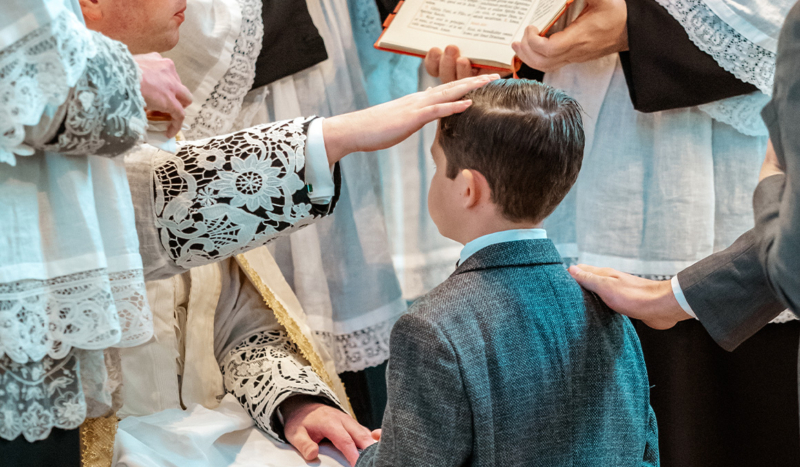
Alison Girone
The bishop of Columbus, Ohio, announced June 28 that the diocese is lowering the age of Confirmation to 9 and 10 years old, citing a need to foster stronger family faith formation amid trends of young Catholics eventually drifting away from the faith.
“It is imperative now more than ever to address the necessity to form our families in the Catholic faith and reconcile their faith with Jesus Christ and His Church,” Bishop Earl Fernandes of Columbus wrote in the announcement. “Children need to be exposed to the awe and wonder of God at a much earlier age and recognize their inherent value and worth as a child of God created in His image and likeness.”
In 2024, Bishop Fernandes commissioned a diocesan committee composed of several priests and diocesan offices of Catholic Schools, Divine Worship, and Evangelization and Catechesis to review whether to lower the Confirmation age. After a year of work on the issue, the committee returned with full support of lowering it to students in fourth grade, around ages 9 and 10.
“A primary reason for their support of this proposal was the unanimous concern of families not raising their children in the Catholic faith, and the need to resuscitate the Catholic identity of our children through the power of the Holy Spirit,” Bishop Fernandes wrote.
Bishop Fernandes commissioned the committee because he saw catechetical formation of families as “one of the most important pastoral issues to address” in his diocese, which led him to inquire into how lowering the Confirmation age may affect this formation.
His inquiry stemmed from the “urgency to address the catechetical needs of our children at an earlier age, as the phenomenon of a child choosing to leave the Catholic faith altogether had become more commonplace at a younger age,” he explained.
The diocese will implement the changes for the Confirmation preparation and reception process over the next four years, starting this fall.
Bishop Fernandes emphasized in the letter that Confirmation does not mark a “graduation” from the Catholic Church, and that receiving Confirmation “is not based on human maturity but on the internal conversion of the child who willingly desires to have an active sacramental relationship with Jesus Christ.”
Confirmation is a part of the lifelong growth in faith formation, which continues especially through participating in Mass and receiving Jesus in the Eucharist.
“With the spiritual trajectory of many families and their children trending toward a disaffiliation from the Church,” he wrote, “the emphasis on family faith formation as a lifelong process is vital toward safeguarding the Catholic identity of our children.”
“All of us have a responsibility to proclaim the salvific message of the Gospel of Jesus Christ and provide a visible and loving path toward Christ for every soul we encounter,” he explained. “Strengthened by the Holy Spirit through the Sacrament of Confirmation, these young disciples in Christ will be better equipped to tackle the indifference and confusion they will face in a world that, at times, denies the existence or belief in God.”

